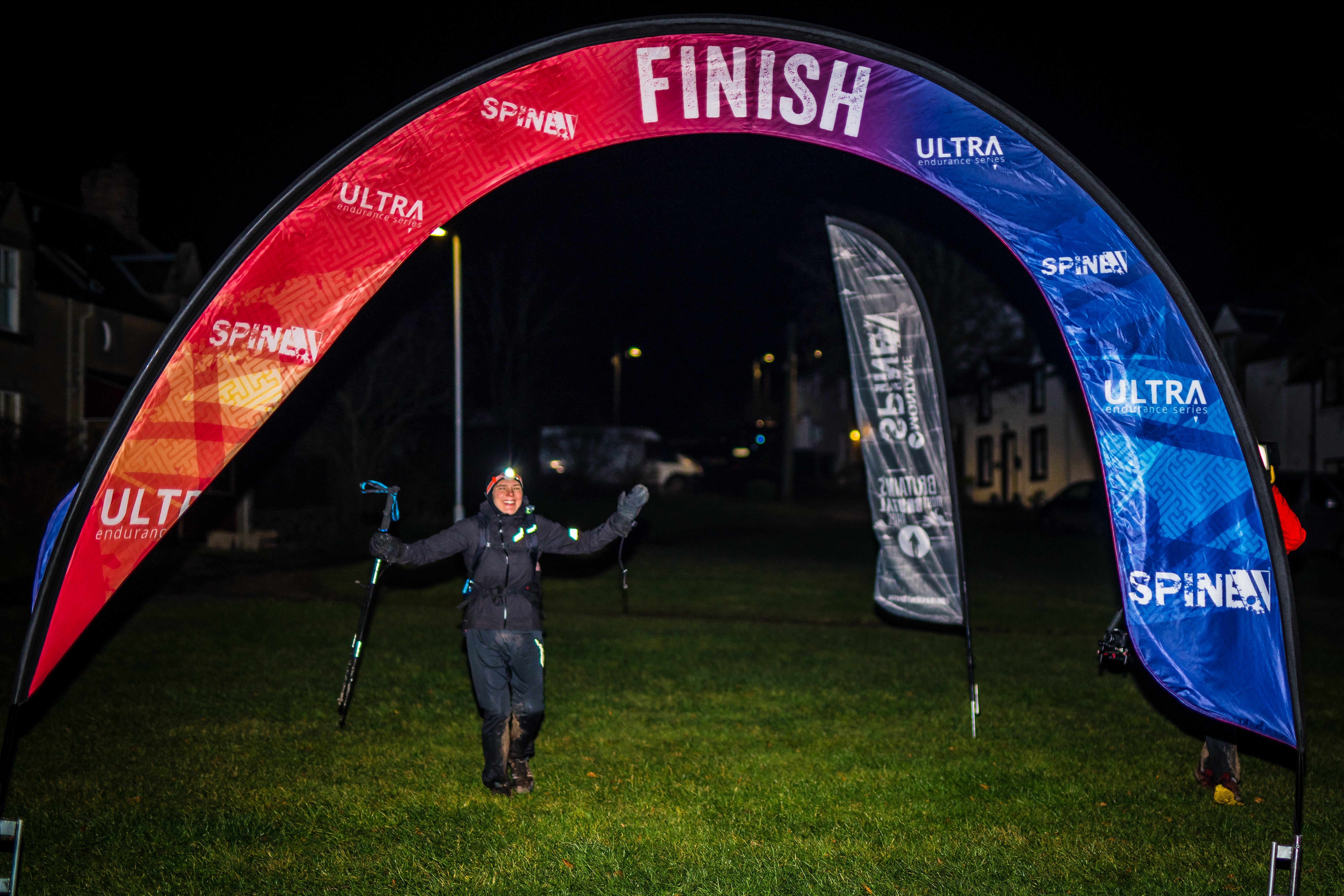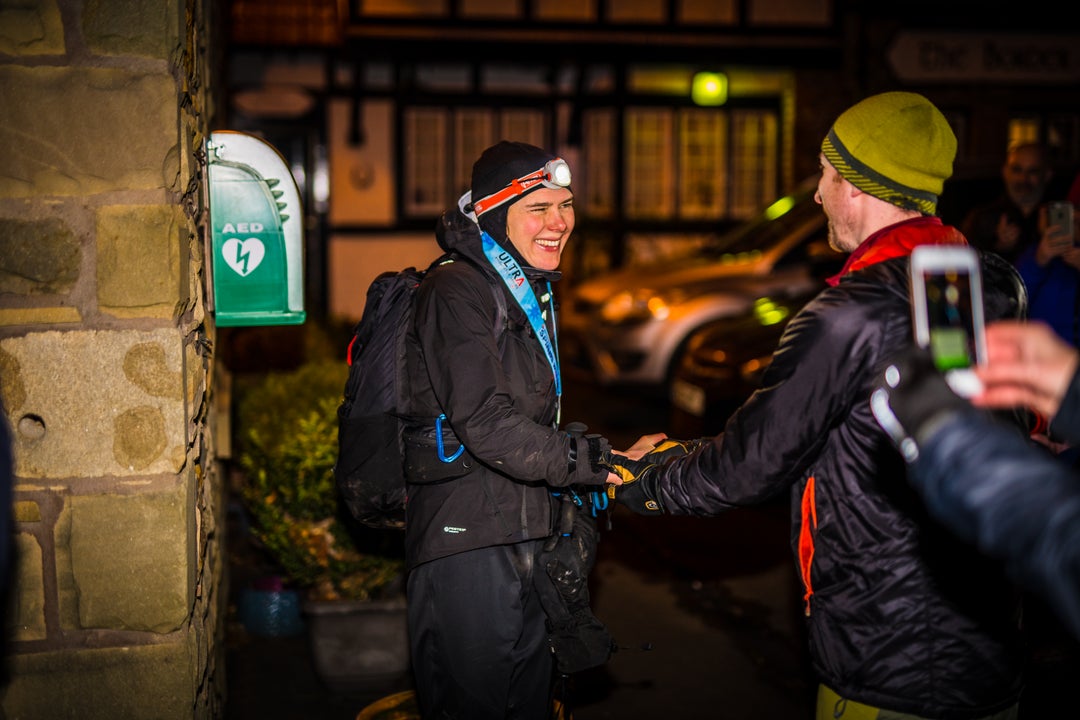Jasmin Paris’ Secret to Success is Her 14-Month-Old Daughter

Jasmin Paris wins the Montane Spine Race, breaking the course recored by 12 hours. Photo by Stephen Wilson.
Jasmin Paris is kind of a big deal.
Earlier this January, the Inov-8 sponsored Paris won the 268-mile Montane Spine Race, crossing the finish line in 83 hours, 12 minutes and 23 seconds and breaking the course record by 12 hours. She also did it all while expressing milk for her 14-month-old daughter, Rowan, pumping at every aid station.
The Montane Spine Race is known as one of the toughest endurance races in the world, stretching over four days and three nights. Paris torched her rivals, crossing the finish line 15 hours ahead of her closest male competitor. But as she thinks back on the multi-day race, which required competitors to barely sleep (if they did at all) throughout its duration, Paris says she may have had a secret weapon: her daughter.
“It was pretty tough getting up at that time in the morning every day when the baby wasn’t sleeping through the night,” Paris said. “Maybe the baby’s helped with the sleep deprivation.”
Paris had to get creative throughout all of her training, juggling motherhood with her full-time job and earning her Ph.D. She ran with a buggy, pushing Rowan, or trained in the hills wearing the baby on her back instead of training with a rucksack.
It was essential to train with a pack, Paris explained, because she needed to be prepared to carry one throughout the race. Though you can’t truly replicate a race like the Montane Spine in training—“You’d end up with wear and tear on your body; you’d break yourself,” Paris says—Paris did increase her mileage throughout training, topping out at about 100 miles a week while also mixing in speed and hill work.
“It’s not easy. I won’t make it sound easy. My training has generally been, during the week I only run between an hour and an hour and a half a day. I do that training at five in the morning, so I get up at half-past four in the morning. I go to work and I come home, and the rest of my day is dedicated to my daughter,” Paris said. “That’s how I do my work-life balance.”
Prior to this race, Paris had never run anything that compared in duration. Her strategy was to break the challenge down in her mind, focusing on completing it “bit by bit.” The hardest night was the first, she said, because in the back of her mind was a reminder of the monumental task that stretched ahead of her.
As time went on, she fell into a rhythm and was able to somewhat disassociate from the physical challenge to simply power through the miles. Aside from the sheer amount of ground that participants covered, Paris found two of the biggest obstacles to be sleep deprivation and proper fueling.
“I don’t think you could run a race like this, fueling yourself with gels and shakes. You need to eat real food. You’d feel terrible after the first day,” Paris said.
There were full meals at checkpoints (think lasagna or sausage casserole), and Paris carried around 3,000 calories of fuel in her race bag. She also needed to keep the pack relatively light, so much of her food was easy to carry – dried fruit and nuts, or pizza that she’d frozen so it defrosted as she ran.
Sleep deprivation was another story. The longer runners slept, the greater their disadvantage was compared to their fellow competitors. Paris estimates that by the last day, on her fourth day of running, she’d only had three hours or less of sleep throughout the whole race.
“I was seeing things in the rocks. The patterns in the rocks were forming the faces of people and animals. I saw animals in every rock. I saw a tree doing yoga at one point, doing its morning stretches. Everywhere I looked, something was odd, but I was cognizant of the fact that it wasn’t real. It was like a picture show,” Paris said. “Even coming down to the finish, I thought all the trees coming down the side of the road were people’s arms.”
When Paris crossed the finish line, not only was she the winner of the Montane Spine Race—she was the first-ever woman to win it. It’s an accomplishment she’s proud of, but not one she ever doubted was within her reach.
“I’m proud of that achievement. And I think I was really lucky, as my parents brought me up, they made no difference between me and my brothers,” Paris said.
“I never really felt that being a girl was in any way a disadvantage in what I could achieve in life. I hope I’m setting an example for my daughter in terms of what she can achieve.”
